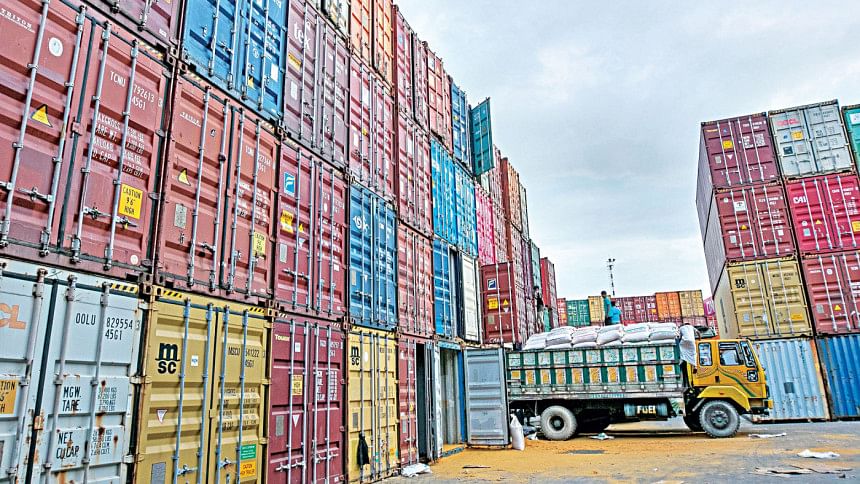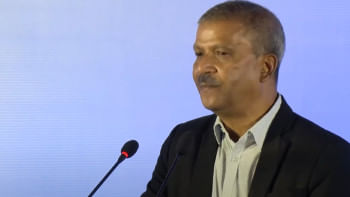Smart logistics key to Bangladesh’s post-LDC competitiveness

As Bangladesh prepares to graduate from the least developed country (LDC) category in November 2026, concerns are rising over the country's readiness in logistics and its impact on export competitiveness, experts said today.
At a virtual roundtable titled "Smart logistics for a competitive private sector" organised by The Daily Star, analysts stressed that efficient logistics will be critical in navigating the post-graduation trade regime.
Bangladesh currently enjoys preferential trade facilities such as duty-free access and relaxed rules of origin under its LDC status, but these will end after the country's graduation.
Participants said the country must urgently overhaul its logistics system—covering policy coordination, infrastructure, digitisation and multimodal transport integration—within the remaining 14 months.
Industry leaders, including Mohammad Iqbal Chowdhury, CEO of LafargeHolcim Bangladesh; Shakil Meraj, director of cargo at Biman Bangladesh Airlines; Md Mahbub ur Rahman, CEO of HSBC Bangladesh; Ziaur Rahman, regional country manager of H&M; Syed Tavir, managing director of Pacific Jeans in Chattogram; Mahbubul Anam, former president of the Bangladesh Freight Forwarders Association; and M Masrur Reaz, chairman and CEO of Policy Exchange Bangladesh, identified structural inefficiencies, regulatory delays and high freight costs as major obstacles.
"Logistics is no longer a secondary issue; it is central to Bangladesh's economic transformation," said Reaz. He outlined five priorities for logistics reform, combining his insights with earlier discussions at the event.
He noted that while the focus remains on the loss of duty-free access after graduation, the need to modernise logistics is far broader.
Echoing the same view, Mohammad Iqbal Chowdhury said logistics can be a "game changer" for industrial cost management. Citing the cement industry, valued at $3 billion, he said logistics accounts for 16 to 17 percent of total costs.
"Currently, 80 percent of our transport is road-based while waterways cover only 16 to 17 percent. Water transport costs Tk 2 per tonne, compared to Tk 8 by road. A shift could cut costs by up to 75 percent," he said.
Mahfuz Anam, editor and publisher of The Daily Star, said, "In the post-graduation era, logistics will determine whether our exports remain competitive. That competitiveness will be driven by the private sector."

 For all latest news, follow The Daily Star's Google News channel.
For all latest news, follow The Daily Star's Google News channel. 



Comments